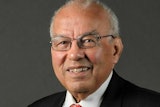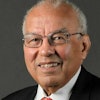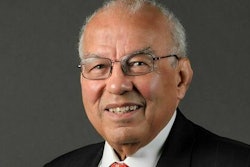Counting on Black
Historically Black colleges offer symbolic venue for candidates wanting to connect with Black voters
By Ronald Roach
The push for a connection between Black American voters and the campaigns of Democratic Party presidential candidates reached a symbolic high in September when the contenders squared off in a nationally televised debate on the campus of Morgan State University in Baltimore.
Inside the elegant Gilliam Concert Hall at the Carl J. Murphy Fine Arts Center on the historically Black campus, the nine candidates who had active campaigns at the time sparred verbally among each other as they answered questions from Farai Chideya, Juan Williams and Ed Gordon, three nationally prominent Black journalists. The debate was a first on several levels: It received sponsorship from the Congressional Black Caucus, and it was the first such event to be held at a historically Black college. A second debate sponsored by the CBC was held later in Detroit.
The Democratic candidates’ efforts to connect with not just Black voters, but younger Black voters, didn’t stop at Morgan State, but continued south to the campuses of historically Black schools in South Carolina such as Benedict College, South Carolina State University and Claflin University. Black campuses have offered a richly symbolic venue for candidates wanting to connect with Blacks, who are estimated to comprise about 50 percent of the Democratic vote in South Carolina. The campuses have been frequented by Democratic presidential contenders seeking victory in what will be the first primary in a southern state on Feb. 3.
At Benedict College, for example, former Illinois Sen. Carol Moseley Braun, officially announced her candidacy; Massachusetts Sen. John Kerry met with a group of 50 students and talked about issues with them; and Connecticut Sen. Joe Lieberman touted his higher education proposals during a campus visit. In addition, former Vermont governor Howard Dean, as well as Lieberman, Moseley Braun and the Rev. Al Sharpton have all visited historically Black Howard University in the nation’s capital.
“The African American vote is going to be just critical. When (candidates) can visit a historically Black college, they can make a much more symbolic significance,” according to Dr. Scott Huffmon, a professor of American government, southern politics, political psychology, voting and behavior at Winthrop University, adding that as of mid-November he had yet to attract any of the candidates to speak at predominantly White Winthrop University in Rock Hill, S.C.
Whether presidential debates in predominantly Black environments and frequent visits by candidates to Black colleges will translate into a high voter turnout by Black voters remains to be seen. Yet, in the few weeks leading up to the start of the 2004 presidential primaries, the Democratic field seems to be paying significant attention to Black voters. Such efforts by Democrats also bring to mind their need to reverse what is considered a strained relationship between the party and its Black voter base, a condition that is brought up frequently by Sharpton and sometimes mentioned by the other candidates.
In public debates, Sharpton has accused the Democratic party of taking the Black vote for granted and deserting its progressive liberal political base in pursuit of a more conservative posture. Analysts say the Democratic Party’s struggle to appeal to a minority base among Blacks and Latinos as well as to working-class and suburban middle-class Whites is defining the character of the Democratic campaign. Black voters, especially younger Blacks who populate college campuses, are listening closely to the messages of the Democratic candidates to determine whether they go beyond the symbolism of Black college campus visits, according to observers.
“The Black electorate is really searching for someone who can speak to their concerns,” says Dr. Kathie Stromile-Golden, director of the Delta Research and Cultural Institute at historically Black Mississippi Valley State University.
The Early Running
Blacks are a key constituency of the Democratic Party. They have typically represented between 20 percent and 25 percent of the national Democratic vote in presidential election years, according to Dr. Ronald Walters, professor of government and politics and director of the African American Leadership Institute, at the University of Maryland-College Park.
Like all voters, Blacks, the most loyal constituency of the Democratic Party, are looking for a winner in the 2004 presidential race. Blacks are “looking for the Democratic candidate who they believe can win” in a general election against President George W. Bush, says Dr. David Covin, professor of government and ethnic studies at California State University-Sacramento.
But “it’s way too early to assess how Black voters are going to react to the candidates,” says Covin.
Dr. Robert Brown, a political scientist and assistant dean at Emory University, says Black voters particularly want to hear candidate stances on employment programs, civil rights, health care, urban development and other social issues. “Black voters are driven less by foreign policy issues than domestic ones,” Brown says, noting that unemployment and other domestic woes tend to disproportionately affect African Americans.
Even as former Vermont governor Howard Dean has vaulted into place as the Democratic frontrunner, there remains a great deal of uncertainty as to whether Black voters will embrace him if he dominates the primaries. Though Dean enjoys support from U.S. Rep. Jesse Jackson, Jr. (D.-Il.), the former governor’s clumsy remarks about wanting to appeal to White guys who have Confederate flags in their pickup trucks struck many observers as insensitive and awkward.
“It’s understandable that Dean wants to appeal to a broad spectrum of voters. He was saying that Republicans are perceived as the party of Whites even though they act against the interests of middle- and working-class White voters,” says Samuel Winslow, assistant professor of politics at Ursinus College in Pennsylvania.
“But the way he expressed that idea shows that he needs to learn how to do it in language that doesn’t turn off African Americans,” he adds.
Others note that since no contender has emerged as the consensus candidate among Black Democratic voters, Dean has room to develop a stronger relationship with Black voters. “Dean is forging ahead with the support of two unions that have a high percentage of Black members. That means the Black vote is going to be split,” Walters says.
“I’m disenchanted with the candidates. They don’t seem to have the spark and the aggression they will need to challenge the Republicans in November,” says Stromile-Golden, who has worked on progressive political causes.
Ultimately, the biggest danger for Democrats is that Black voters turn out in low numbers in the general election because they are not sufficiently enthusiastic about the eventual Democratic nominee. Due to demographic shifts resulting from a reverse migration of African Americans to the South, experts are saying that Blacks may prove to put Democrats in a more competitive position in the Republican-dominated region.
The bottom line is that “Democrats can’t win without a substantial Black vote,” Covin says, noting that Black votes can prove decisive in close races in Northern and Midwestern states.
The Sharpton Factor
Maryland’s Walters says one of the interesting questions in the Democratic race is whether Black voters will mobilize wide-scale support behind one of the African American candidates in the race.
“The main thing to consider is whether (Black voters) will cohere around Al Sharpton or Carol Moseley Braun. My position is that Black presidential politics is the most politically powerful forum that (Black Americans) have,” Walters contends.
Walters, who was the deputy campaign manager for issues in the Rev. Jesse Jackson’s presidential campaign in 1984, finds it dismaying that Black leadership groups, such as the Congressional Black Caucus, have not advanced a strategy that would result in a single endorsement of either Sharpton or Moseley Braun. “They should have made a collective endorsement,” he says.
The failure of Black leaders to mobilize behind one of the Black presidential candidates makes it likely that Blacks “will not decide who the nominee is.”
In Walters’ view, the Black leaders who parcel out their endorsements among several Democratic candidates are “playing the politics of impotence.” A sample of Congressional Black Caucus members reveals varying alliances: U.S. Rep. Harold Ford, D-Tenn., has endorsed Massachusetts Sen. John Kerry; U.S. Rep. James Clyburn, D-S.C., has endorsed Missouri Rep. Richard Gephardt; U.S. Rep. Alcee Hastings, D-Fla., has endorsed Connecticut Sen. Joseph Lieberman; U.S. Rep. Charles Rangel, D-N.Y., has endorsed retired Gen. Wesley Clark; and U.S. Rep. Mel Watt, D-N.C., has endorsed North Carolina Sen. John Edwards.
“There’s a sacrificing of national interests over local ones” by Black elected officials whose endorsements range all over the political map, according to Walters.
The hallmark of Black presidential politics came during and after the 1984 and 1988 presidential races. Walters argues that Jackson had a substantial impact on the Democratic party as well as on President Clinton’s administration.
“Jackson had a great impact on the Clinton administration keeping affirmative action in place,” Walters contends, noting that there were urban and foreign policy influences resulting from Jackson’s mobilization of Black votes.
“Ron Brown would have not been the chairman of the Democratic Party without the role of the Jackson campaign,” he says.
Walters concedes that having two Blacks in the presidential race has complicated the task for Black leaders and voters to craft an unified approach. “There should be only one candidate,” he says.
Stromile-Golden doesn’t believe that Moseley Braun is proving to excite Black voters. “I’m not sure that African Americans are relating to Carol in a way that would make them vote for her,” she says.
Emory University’s Brown says it’s not likely that Black leaders would take a chance on coalescing behind one of the Black candidates when neither one is taken as seriously as Jackson was during the 1988 campaign. Brown contends that Black leaders coalesced around Jackson only after he proved in 1984 that he could attract substantial numbers of Black votes.
“Sharpton would have to attract a majority of Black votes before you’d see Black leaders getting behind him,” Brown says.
In a national poll conducted by Zogby International in early November, Sharpton had a fifth-place finish in the Democratic field with just 4 percent support among likely Democratic voters. Dean finished first in the field with 15 percent support. Moseley Braun tied for the last-place finish with U.S. Rep. Dennis Kucinich with 2 percent support.
Sharpton has a lot of baggage and it’s questionable that “he can do what Jesse did” in the 1984 and 1988 presidential campaigns, Covin says. People were “intensely organized” by the Jackson campaigns, he adds.
“The scholarship is well established” as to the impact Jackson had on the Democratic Party and national politics. “State legislators, mayors and several Congressional Black Caucus members” swept into office partly as a result of Jackson’s campaign, according to Covin.
Sharpton wants “to be a powerbroker of the Black vote for the Democratic Party.” Whether he can “be successful is entirely unclear,” Covin notes.
“Al Sharpton hasn’t done that. I don’t hear anyone talking about ‘Run Al, Run,’ ” Covin says.
For his part, Walters believes Sharpton still has a ways to go toward demonstrating a thorough mastery of public policy issues and solutions. And he adds that Sharpton needs to deploy a more substantial campaign in the field.
“Sharpton has to improve his policy competence. And he has to have a campaign on the ground,” he says.
Beating Bush
A number of scholars studying the 2004 presidential race speculate that President Bush is highly unlikely to increase his margin of support among Blacks beyond more than a few points above the 9 percent of Black voters he captured in 2000.
“I think it’s possible Bush may pick up a few points from the standpoint of some Black voters motivated by national security concerns. If there’s stability overseas and the terrorism threat is reduced, there will be Black voters who will credit the president for that,” Brown says.
However, the appointment of conservative judges and the opposition to the University of Michigan affirmative action plans have been among several policy stances that have not endeared Black voters to Bush, observers say.
In the view of most Blacks, “President Bush hasn’t done a lot to appeal to African Americans,” Winslow says.
Undoubtedly, how scholars evaluate the Black vote in the 2004 presidential race will mostly focus on the candidates who do appeal to African Americans.
© Copyright 2005 by DiverseEducation.com















